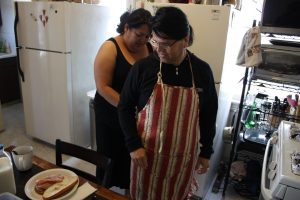- Taking the 20,000 foot view on my class
- Ending the semester, Lessons Learned (Part 4: Assessment)
- The Backwards Syllabus
- Low hanging fruit
- VoiceThread as Final Exam
- Teaching outside of the textbook and inside of the museum
- Digital Storytelling and Language Learning
- Blogging their scholarship
- Professional development: Simple, small-scale, and cost-effective
- Why I teach.
- Teaching Transparently: Scuba diving in 2nd year college Spanish
- Ending the semester, lessons learned (Part 3)
- Social Networking and Octegenarians
- Ending the semester, lessons learned (Part 2)
- Ending the semester, lessons learned (Part 1) … (of what will be many)
- Midterm assessment: My turn
- What’s under the hood: letting the outside in
- Informal Assessment, Disruption & Repair: Making change happen.
- Week 4: What? You don’t want me to write a paper?
- Welcome to the free fall
- Struggling with the Syllabus
- Imagining a college without grades
- Reflections from the Chair Swing, Moving into the Summer
- Syllabus Hacking with Bryan and the bava
- Well this is embarrassing
- There is no mystery in grading
- Using Can-Do statements for student self assessment
- El Proyecto Personal: Creating Conversations, Taking Risks, Learning to Prepare for the World Outside the Classroom
- Creating Radio in the Language Classroom
- Teaching Acceptance through Storytelling
- Improvisational teaching
- Fear, Motivation, Social Consciousness and Language Learning: the graph
- Using Radio Ambulante in the Spanish language classroom
- Creating, Uploading, Commenting and Sharing Audio via SoundCloud
- Notes I jotted to myself at the end of the term
- Student-centered, project-based learning…and a medical emergency
- Taking a tour of the HISP 205 class blog
- Let’s go bowling!
- Cooking with Drag Queens: Teaching Inclusion and Discovering the Limits of the Spanish Language
- Tune Up and a Smack down (part 2): The gringa returns to Bogotá
- A tune-up and a smack-down: The gringa returns to Bogotá
- Rethinking the role of the language textbook
- Our WordPress Class Blogging Tool: Now Yours Too
- A few shout outs and a woof
- Mid semester evaluation: Do it.
- What we did in class today, and no I can’t get you the notes.
- Searching for blogs in all the wrong places.
- Planning for HISP205-09… in Second Life
Readers of LLU know that I am a huge fan of the work being done by the people at Radio Ambulante. Not only is the audio in these 8 -15 minute radio shows beautifully and intricately crafted, the stories they tell are compelling and relevant to the world that surrounds us. They are stories that we don’t always hear via the mainstream US media. Or as they identify themselves on their Tumblr page: “A monthly Spanish-language radio program telling uniquely Latin American stories.”
Radio Ambulante does not create audio specifically for the language classroom… their main audience is listeners for whom Spanish is their first language. In fact, the audio can be extremely challenging for students studying Spanish. My goal, however, was to make these stories accessible to my students so that they would want to talk about them in class.
What follows here are some of the resources I created to use with Radio Ambulante’s “Yadira, Javier y Lucía” which I am discussing with my class today, October 11th, also known as National Coming Out Day.
Here is the description of the story in English:
Javier and Yadira met, fell in love, and made a life together. But sometimes relationships change in the most unexpected ways.
I asked my students to review the picture that accompanied the recording on Radio Ambulante’s homepage. I suggested that they look at it carefully and consider why the title of the story mentions three names.. and yet the image only contains two people.

Image thanks to Radio Ambulante
Prior to assigning the story, I prepared a script. I identified the names of the narrators, gave a general idea of what was being discussed in certain parts of the recording and identified any expressions or regionalisms that I thought they would need to know (ex: “Y me aventó un rollonón, y le dije ‘al grano!’ ” or “Cómo no me cayó el veinte”).
And while the story takes place in San Francisco, I asked the class to look at this site as well and to see what countries in the Americas had created legislation to support and protect LGBTQ people (while emphasizing that “support” and “protection” can vary widely…alas…), How does our country compare to…say,…Uruguay?
And then…. they listened.
( Reported by Rosa M. Ramirez, produced by Nancy López, and edited by Camila Segura)
Finally, I asked Ryan to help me brainstorm some small group questions for the class. I wanted to find a way for my students to think about the challenges that confront people who come out, not least of which is the reaction (sometimes unexpected, sometimes remarkable) from the people who love them. I put them in a google doc here. Feel free to add comments, suggestions, questions that you may have used when you used this audio in class. The folks at Radio Ambulante are keen on figuring out ways to make these materials useful and accessible to our students… please join the conversation!
Small group conversation questions. Add yours!
As I was putting together these questions I did a little spell checking using the forums in Word Reference.com. When I asked about the prefix trans, this is what popped up:
Yes, this screenshot will also become a conversation topic in class today 🙂
So, feliz “Día del Salir Del Armario” (ah, Google Translate) to all, and thank you once again Radio Ambulante for creating remarkable stories that enrich and enlighten our classroom conversations.
Comments welcome!



[…] you have been following LLU you will see that I have been talking about using Radio Ambulante’s amazing shows in my conversation class. RA’s shows are broadcast as radio shows, but are also available as podcasts via iTunes or […]